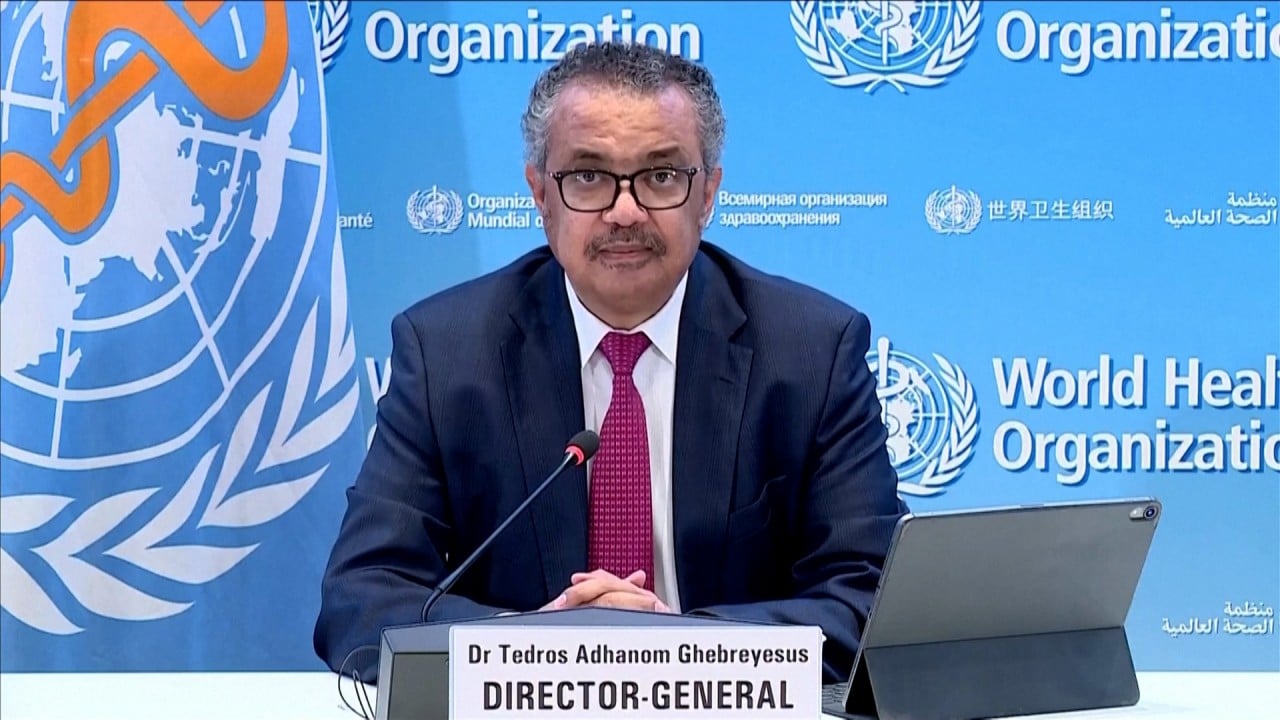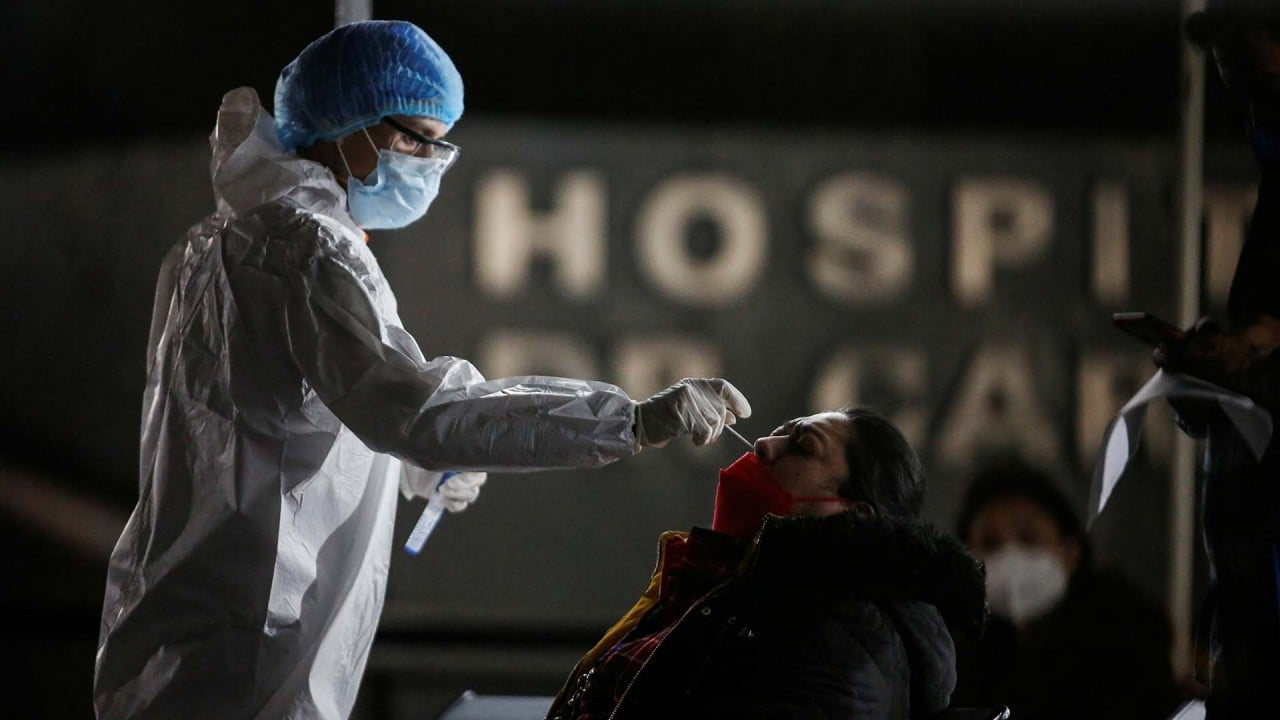
Omicron: Chinese researchers say their ‘godsend’ new antibody may neutralise variant and future strains
- Surprise discovery – made while Fudan University researchers were investigating another disease – would put humans ‘a step ahead’ in race against the pandemic
- New antibody was synthesised from components of two different antibodies produced by human immune cells, according to paper
The surprise discovery – made while researchers were investigating another disease – would put humans “a step ahead in the race” against the pandemic, said lead scientist Professor Huang Jinghe of Fudan University in Shanghai on Tuesday.
The new antibody was synthesised from components of two different antibodies produced by human immune cells. When used in their natural forms, these antibodies were futile against the Omicron variant of Sars-CoV-2, the virus that causes Covid-19.
But the man-made version breached Omicron’s line of defence, using what Huang described as a series of “combo moves” similar to those in the Street Fighter video game.
Huang’s team and collaborators at the National Clinical Research Centre for Respiratory Disease in Guangzhou developed eight different highly-potent antibodies in a short period of time using this new approach.
“There are very few antibodies that can neutralise Omicron in the world. I feel like I’ve been hit by God’s grace,” she said.
Huang’s team reported their work in a paper, “Combating the Sars-CoV-2 Omicron variant with non-Omicron neutralising antibodies” posted on the Biorxiv preprint website on Monday. The paper has not been peer reviewed.
“This is a new discovery, very meaningful,” said Professor Wen Yumei, director of the Institute of Pathogenic Microorganisms in Fudan, who was not involved in the study.
The US Food and Drug Administration revoked the emergency authorisation for these drugs last month because they no longer work against Omicron, a highly transmissible variant compared with other strains of the coronavirus.
A research team with the University of Washington School of Medicine in Seattle reported last week they had discovered an antibody for Omicron, but candidates with the potential for drug development remained scarce compared with those in earlier outbreaks.
Huang said her team’s discovery was a surprise because the bispecific antibody technology – able to bind to two antigens – they used was not developed for Omicron, but for another infectious disease, which she declined to identify.
“It worked quite well, so we gave it a try on Covid-19,” she said.
WHO: 90 million Covid-19 cases since Omicron was detected
Stitching different types of natural antibodies together was not easy and researchers tried various combinations.
After many failures, they obtained 10 man-made antibodies just 10 per cent larger in size than a typical antibody of natural origin, according to the researchers.
Eight of these antibodies can hit Omicron and other variants with a series of surprisingly complex moves. After making initial contact with the virus’s spike protein with one end, for instance, the antibody uses another end to stroke the surface of the spike, enlarging the interface area so more antibodies can bind with the virus.
The components, despite being from different natural antibodies, “have collaborative roles in the neutralisation process,” Huang and colleagues said in the paper.
The researchers tested these antibodies against a live Omicron variant with a new mutation to evade immune attack, and found they worked just as well.
The results suggested that these new antibodies had much potential to deal with new variants in the future, according to the researchers.
For more than two years, science has been trailing behind the virus because treatments cannot keep up with new mutations.
With the new approach, it would be possible to “cope with shifting events by sticking to the basics,” Huang said.
The researchers said the eight antibodies they developed might be just the tip of the iceberg.
Since the start of the pandemic, researchers from around the world have discovered a large number of antibodies with neutralising effects.
There was a growing fear that the Omicron could sweep all these efforts into the rubbish bin.
What’s known about ‘stealth’ version of Omicron?
Huang said their method could turn these natural antibodies into a powerful arsenal to aid the battle against the pandemic. The new antibodies could be produced by a standard method.
“Mass production will not be a problem,” she said.



